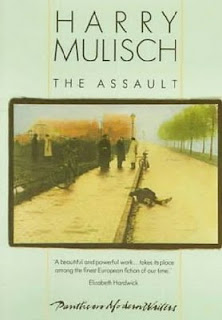
This is not Jess Walter's best book, but it is nonetheless a fun read. Walter's dazzling writing and mordant wit carry the reader along, and if you're willing to look at it as a post-modernist satirical parable rather than a realistic novel, it works.
It falls short, I think, of the high mark set by Citizen Vince and The Zero, but it is entertaining and does make a point. I had a friend in Paris who said when a transport strike resulted in total gridlock throughout the city that he always thought the difference between civilization and barbarism was 10 hours -- and he was almost proven right. Similarly, here, Walter illustrates how thin the veneer of middle-class prosperity is in our society and how quickly a recession can wipe it out.
The premise of the book is blatantly preposterous. The narrator, Matt Prior, gives up his job as a business reporter to launch a Web site that would report financial news in verse. Nobody would ever do that. His subsequent adventures look like a parallel version of Weeds as written by T. Coraghessan Boyle and Elmore Leonard. The sequence of events and the moralistic conclusion are all overdrawn in deliberate satire. What is realistic is the portrayal of the death of newspapers, the hypocrisy of much of middle-class life, the tenuousness of relationships, the tenacity of family, the stupid desperation of criminals -- all portrayed compactly through the eyes of the narrator, who, though flawed, retains our sympathy throughout.
This is probably Walter's funniest book and should make you laugh out loud in parts. Some of the shtick -- the price of milk at 7/11, the demented father patting his pocket for his absent cigarettes -- is overworked, indicating that perhaps the novel needed one more pass by an editor. But the sheer exuberance of the writing makes this a quick and satisfying read.
Much as I like Jess Walter, though, I was glad I'd waited for the paperback version on this one. I'm sure his best book lies in the future.

